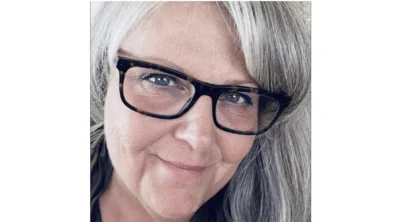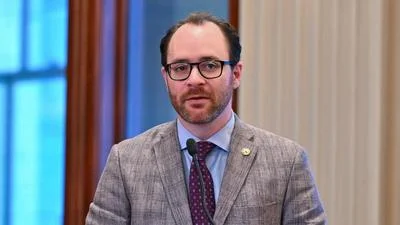Amanda Grassel ’23 attended the annual Society for Neuroscience conference in San Diego November 12-16 to present her research. The meeting brings together experts in neuroscience from across the globe and is widely considered the premier global neuroscience event.
Grassel’s senior thesis and the work presented in her conference poster are focused on characterizing three newly discovered mutations to a protein called alpha synuclein in a very unconventional model organism: budding yeast. α-Synuclein is heavily implicated in Parkinson’s disease, and these mutations were discovered in people who had the disease.
“The focus of my research is how the combination between genetic mutations and cellular environment play a role in the disease,” Grassel explained. “Specifically, I have been looking at factors like elevated nitrative stress levels and regulation by other genes associated with Parkinson’s.”
She presented her recent findings at the conference. Also in attendance from Lake Forest College were Tracey Nassuna ’23, Ryan Osselborn ’23, Fede Bertolotti ’22, and Disque D. and Carol Gram Deane Professor of Biological Sciences Shubhik DebBurman.
“Presenting at these conferences has been a really great learning experience as I’ve not only gotten better at communicating and presenting, but also been able to get insights from other scientists on other potential experiments I could do to further this work,” Grassel said.
Grassel, who is majoring in neuroscience, has previously presented at the annual Robert B. Glassman Symposium, the annual Great Lakes Chapter of the American Society for Pharmacology and Experimental Therapeutics Scientific meeting, and the Annual American Society for Biochemistry and Molecular Biology and Experimental Biology meeting in Philadelphia as well as the 2022 Chicago Brain Bee.
“As I’ve continued to present at a variety of different conferences, I’ve realized that I actually really enjoy presenting now because I truly enjoy the work that I’m doing,” Grassel said. “Since I have so much passion for the research that I do, I no longer think of presentations as something to be dreaded but rather as an opportunity to share something I’m really excited about with others.”
Grassel’s research began when she was mentored by alumna Carris Borland ’21.
“I really would not have been able to do this project without Carris and I am truly grateful for her mentorship, research contributions, and friendship,” Grassel said. “This project was based on previous work in our lab and others that looked at characterizing older α-synuclein mutants and how cellular environments influence their toxicity. Previous findings with these older mutants are what inspired Carris and eventually me to study the cellular conditions that this project is focused on.”
Borland’s 2019 thesis studied the effect of post-translational modifications and lipid dyshomeostasis on the toxicity and localization of the new α-synuclein mutants. To expand on this, Grassel is focusing on the effects of other cellular environments on the toxicity, localization, and expression of the new α-synuclein mutants while also replicating Borland’s findings.
After graduating, Grassel plans to take two gap years before pursuing either an MD or MD-PhD program.
“During my gap years, I will spend a lot of time preparing for and taking the MCAT as well as working,” Grassel said. “I am currently planning to work as either an EMT or a research assistant, depending on which program I decide to pursue. My career goal is to become a neurosurgeon and work with organizations like Doctors Without Borders to help those in need around the world.”
Original source can be found here.





 Alerts Sign-up
Alerts Sign-up